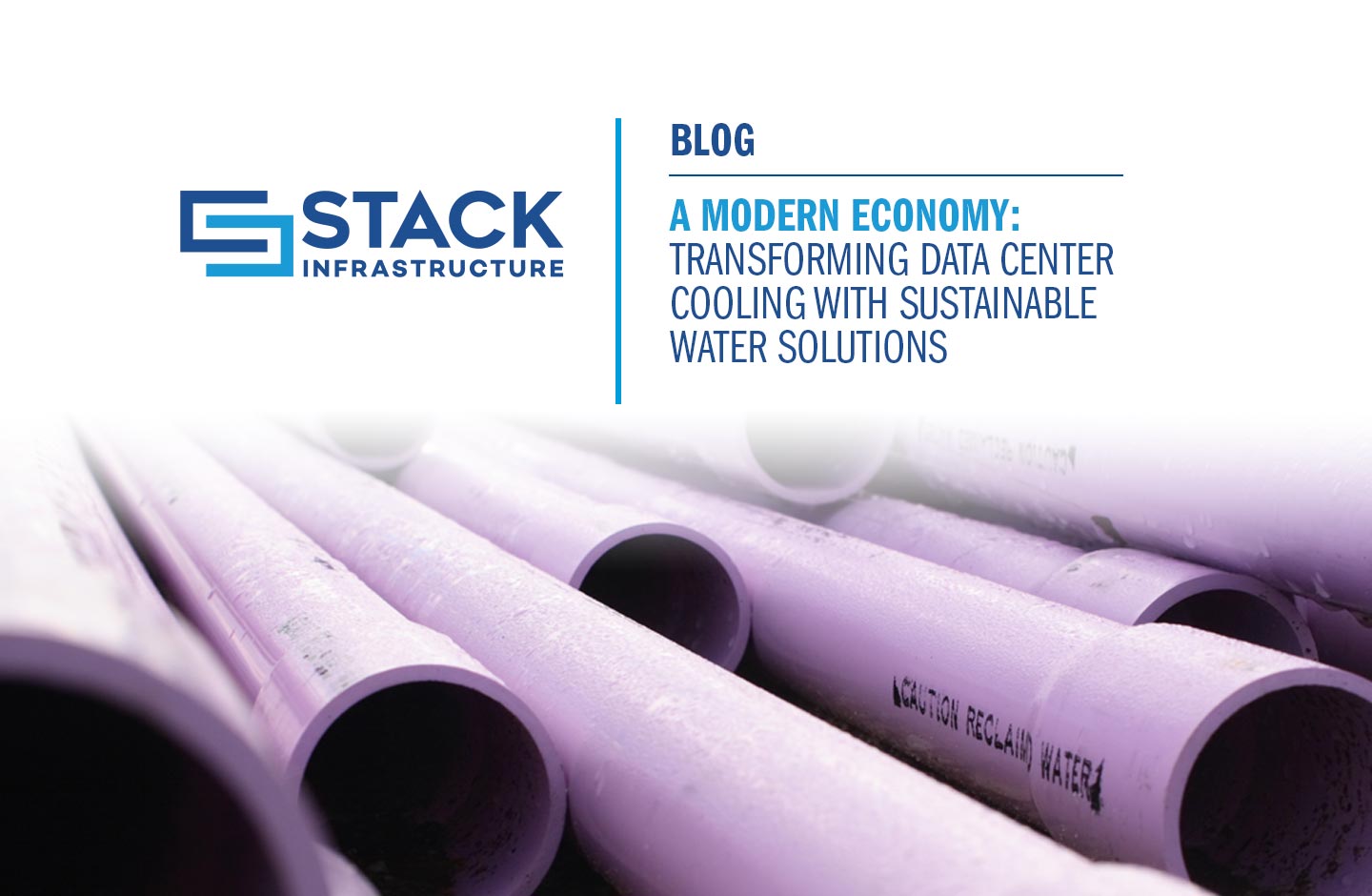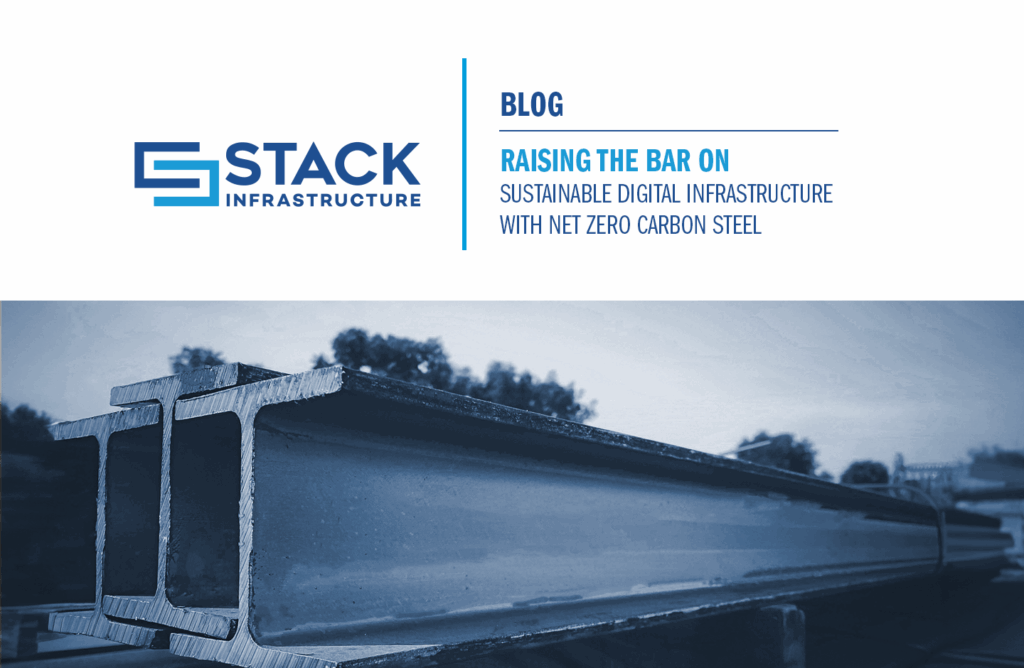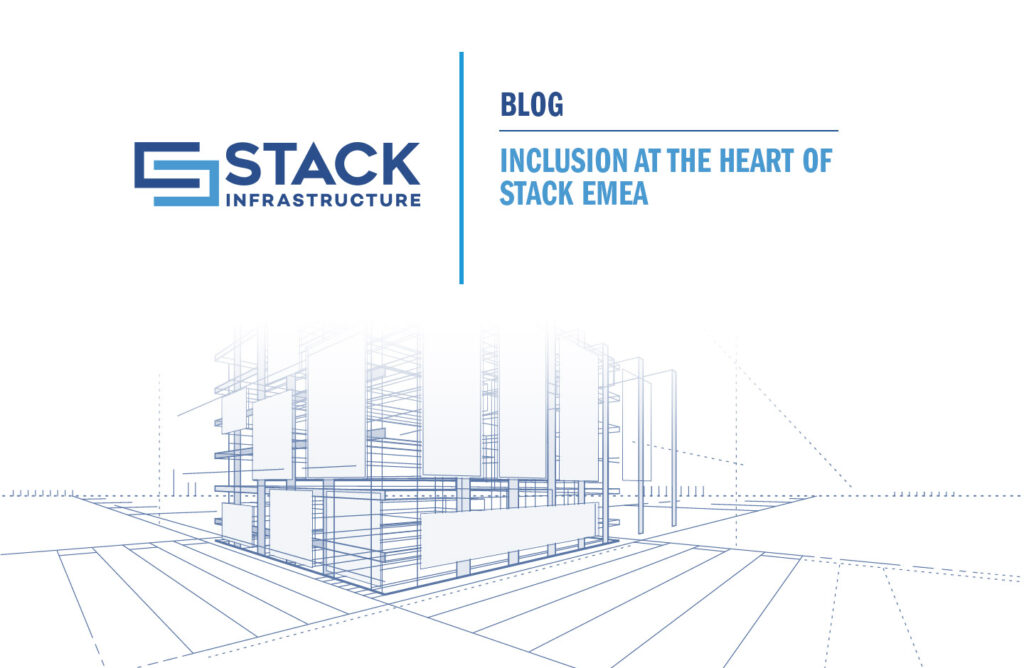A Modern Economy: Transforming Data Center Cooling with Sustainable Water Solutions

Water is an essential and finite life resource that ensures the balance and resilience of our planet’s ecosystems. With the ever-increasing global demand for freshwater forecasted to exceed supply by 40% by 2030, communities across the world are racing to secure and optimize the use of precious potable water supplies.
Simultaneously, the digital infrastructure industry has long labored to operate data centers as sustainably as possible. One solution is recycling water for industrial purposes. This enables energy-efficient data center cooling without significant impact on potable water supplies and generates new revenue streams for the utility.
Data centers prioritize sustainability and advocate for increased availability of recycled industrial water. Collaboration between industries, utilities, and municipalities is essential to develop and promote environmentally friendly and economically feasible recycled water systems. This collaboration can revolutionize data center cooling while benefiting people, the planet, and prosperity.
Understanding Purple Pipe Systems: A New Horizon for Data Center Water Conservation
Water pipes have different colors for different uses: blue for drinking water and red for fire lines. In the 1980s, Irvine Ranch Water District selected Pantone 240 and 241 as the universal color standard for reclaimed water pipes so that their colorblind engineer could detect them, and thus, purple pipe was born. These plum-colored pipes distribute non-potable water, treated to eliminate contaminants, solids, and impurities, for reuse in non-drinking purposes such as industrial cooling and agricultural irrigation.
These purple pipes have the exciting potential to redefine the dynamics of data center cooling. Traditional cooling systems have often forced a tradeoff between energy efficiency and water conservation. Although closed-loop cooling systems reuse water infused with cooling chemicals, they tend to consume more energy than evaporative systems. Conversely, evaporative cooling systems use less energy but involve higher water consumption.
With purple pipe systems, data centers can embrace the energy efficiency of evaporative cooling while reducing potable water consumption, striking a balance that addresses both environmental and operational concerns. Purple pipe systems are a great option for conserving local drinking water supplies and fostering more sustainable and resilient water infrastructure.
Contributing to Community Prosperity: Economic Opportunities from Purple Pipe Counties
The adoption of purple pipe systems by data centers promises untapped economic opportunities. These systems could potentially introduce demand for non-potable water, an underutilized or previously unutilized resource. Rather than discharging non-potable water as wastewater, counties could generate revenue from selling reclaimed water, charging fees for connection to the purple pipe system, and collecting taxes and fees for additional water treatment services. Reclaimed water, distributed at less than half the cost of potable water, supports cost-efficient operations for data centers and translates to tangible cost savings that can be passed on to data centers and their customers. Furthermore, growing industrial water usage with non-potable water enables the allocation of potable water for other activities in the local economy, such as restaurants, grocery stores, and agriculture.
Additionally, educational programs can be developed around purple pipe systems to inform residents, businesses, and local institutions about the importance of sustainable practices, fostering a sense of collective responsibility. The shift towards responsible resource management also attracts businesses that align with sustainable practices. The economic ecosystem flourishes, generating employment opportunities that empower residents, enhance livelihoods, and improve quality of life. The result is a diverse and responsible business landscape that respects environmental considerations and contributes to the community’s prosperity, creating a positive feedback loop where responsible practices lead to shared success.
Cooling Compatibility: Navigating Reclaimed Water Challenges for Data Centers
Dual pipe systems, separately carrying potable and non-potable water, offer multiple advantages for both communities and companies. For every gallon of recycled water used, a gallon of potable water is saved for local use.
Nevertheless, business strategies must be analyzed thoroughly. Prior to implementation, digital infrastructure companies should consider certain challenges that may arise in purple pipe’s compatibility with data center cooling solutions.
- Water Quality: If the reclaimed water does not meet the quality standards required for cooling systems, contaminants or impurities can lead to corrosion, scaling, or biological growth, ultimately impacting efficiency and lifespan.
- Material Compatibility: Certain materials or components require specific types of water and may be incompatible with reclaimed water, leading to equipment degradation.
- Regulatory Compliance: Additional paperwork and monitoring may be required due to local regulations governing the use of reclaimed water.
- Infrastructure Costs: Growth pays for growth, which means prospective users of purple pipe infrastructure may face significant upfront costs to install a separate distribution system for the reclaimed water.
- Availability: Very few service areas have an existing purple pipe system, which means stakeholders need to invest in development of these systems to take advantage of the benefits.
To overcome the above challenges, data centers and other users of non-potable water must cultivate relationships with municipalities, utilities, and government. Collaboration is vital for improving local water treatment and investing in purple pipe infrastructure to ensure high-quality, reliable, and compatible reclaimed water.
Modeling Success: Progress in Loudoun County, VA
A compelling case study in the successful implementation of purple pipe systems can be found in Loudoun County, VA. In Northern Virginia, a regional initiative spanning multiple states is underway to improve water quality in the Chesapeake Bay. Loudoun Water, a key player in this initiative, pumps reclaimed water through a separate purple pipe system from one of the world’s best treatment facilities for wastewater purification. In 2023, Loudoun Water delivered 815 million gallons of reclaimed water to its customers saving an equal amount of potable drinking water.
While data centers are required to also connect to the potable water system as a backup and to meet service level agreements, facilities typically only purchase around 10% of the actual maximum daily capacity. Since the operational cost of reused water is roughly half that of potable water, this arrangement represents a significant financial advantage for data centers while simultaneously cutting fixed and variable operating expenses.
Expanding the Vision: Sustainable Water Opportunities for Neighboring Counties
Loudoun County’s success serves as a blueprint for neighboring counties, which are catching on to the economic and environmental benefits of purple pipe. The city of Manassas has an allotted capacity of 9.19 million gallons per day, which is forecast to be absorbed by 2030. As a result, Prince William County Service Authority broke ground on the H.L. Mooney Advanced Water Reclamation Facility-Wide Improvements Project in December 2023. In fact, the Service Authority’s latest capital spending plan jumped 96% from the previous fiscal year, allocating $923 million for capital projects covering the 2024-2028 fiscal year, with an 88% increase in funding for its water reclamation facility.
Many data center markets have the potential for similar economic gains by partnering with data center developers and water treatment facilities. Communities interested in investing in purple pipe infrastructure should conduct a thorough feasibility study and consider the specific conditions and requirements of the data center and its surrounding environment. Engaging with water treatment experts, regulatory authorities, and other relevant stakeholders is essential to mitigate potential downsides and ensure a successful and sustainable implementation.
STACK Infrastructure, with ongoing projects utilizing Loudoun Water’s purple pipe system, is pioneering initiatives that extend connections across its property. This represents a critical step in supporting the entire industry and facilitating economic development.
Calling for Action: A Symbiotic Relationship between Data Centers and Communities
While the data center industry has consistently been at the forefront of advancing efficiencies and implementing sustainability targets, the widespread adoption of purple pipe systems necessitates a symbiotic relationship with local governments and communities to drive change. This change involves increasing the prevalence of purple pipe infrastructure, addressing local potable water resources, and decreasing waste management costs, all while progressing towards the universal goal of water conservation.
Such groundwork development would demand significant expenses and space. Localities and regional water authorities must proactively study the feasibility of purple pipe infrastructure, whether for storing water or connecting projects to existing pipes. If purple pipe systems are deemed viable and receive support, decision-makers must then engage in partnerships with potential customers to understand local demand on wastewater management facilities and the feasibility of such investments. Through cooperation and shared responsibility, purple pipe systems can become catalysts for a brighter, more sustainable future, where the prosperity of data centers and communities are intertwined.
Stay tuned for more updates on water and energy conservation solutions, economic benefits, and local partnerships within the data center industry. Together, we can create a more sustainable future as we build the next generation of data centers to support the modern economy.
By Vanessa Kennedy, VP, Development and Michael Van Dyke, Director, Public Affairs
April 22, 2024




